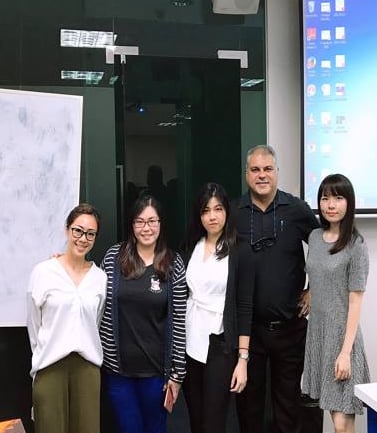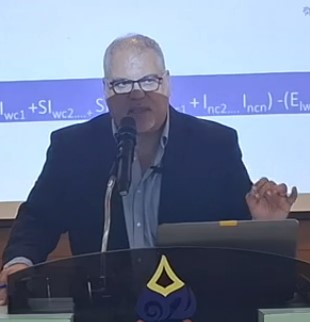I turn flexible work initiatives into measurable economic value. Discover how much hidden salary you may be paying—without even realizing it.




The Economic Value of the Personal Time (EVPT): The UNIQUE way to measure in $ the emotional salary that corporations pay to their employees
I am an experienced and well-known professor and a specialist in Business Administration and Microeconomics. I have devoted most of my working life to the fascinating subjects of International Business Management, Business Administration, and Applied Economics.
My extensive industrial experience includes several years as an Entrepreneur, Consultant, International Expansion Manager, and Microeconomist Researcher. Founder of Econtime Consultants


I have been described in recent economic commentaries in 100+ media in the U.S. as a professor and consultant who specializes in time economics—an applied area of microeconomics that tries to quantify the value of leisure or personal time in monetary terms. Qualitative Data Analysis research has led me to a Grounded Theory and a measurement of the concept called the Economic Value of Personal Time (EVPT) to measure how time outside of formal employment can be assigned a dollar value.
I was a former executive at Haygroup, acquired since 2015 by Kornferry Group, and have mentored and taught 7,000+ executives and students in business over 25+ years. My books include a #1 best-selling Amazon book published in 2024 under the category Comparative Economics. Professionals and managers from the following companies have attended my conferences and participated in events in which I have participated: Apple, Ace Hardware, HSBC, Ford, Starbucks, Huawei, Lippo Group, and GWM.
Actually, I am an Honorary Fellow at the Global Academy of Finance and Management, Professor of Microeconomics, Consumer Behaviour and Financial Management at the Institute for American Universities (IAU) and the American College of the Mediterranean, mostly serving students from the University of Arizona, University of Nebraska at Lincoln, or Southern Methodist University (SMU), Dallas, among others.
I hold a Doctor of Business Administration (D.B.A.) from the Swiss Business School University of Applied Sciences (Zurich), an M.B.A. from Nottingham Trent University (U.K.), and a Graduate DipM. at The Chartered Institute of Marketing (U.K.), a Postgraduate Diploma in International Finance at Tech University, Postgraduate Diploma in Business Research Methods at the University of Bradford School of Management (U.K.), and a B.B.A. at ISM & EIU. Also, executive education courses at Wharton and IESE.
I measure the economic value of emotional salary for organizations.
A process of measurement based on scientific research published in journals indexed in international repositories




Corporate Audit on Employees
In an online or onsite process, I and/or my people at Econtime Consultants collect data from your employees and create a personal profile for each person












Collecting and Analysing Results
Calculation in $ of the Emotional Salary Paid by the Company
On-site/ onlline consultancy
Results and data are aggregated and segmented by departments, genders, positions, etc
According to the former data obtained, we create a profile for each employee and an economic corporate valuation of the organization's emotional salary value.
Our consulting services can be implemented onsite or remotely, depending on the client's needs.
Why GM


Personalized Approach
Every student, college, or company is different. Dr. Monray takes the time to understand your individual needs, concerns, and goals before approaching a plan.

25+ years of experience
More than 25 years of experience in management consulting brings deep strategic judgment, pattern recognition across industries, and the ability to anticipate risks and outcomes that less experienced advisors may overlook. This experience translates into faster diagnosis, more practical solutions, and decisions grounded in real-world results rather than theory alone.










Student Testimonials
Jessica De Russo University of South Carolina


"Dr. Monray, thank you for leading such a spectacular course".




Jason Brown. IAU & Southern Mehodist University
"Professional, knowledgeable, and thorough. One of the best professors I ever had."






Ava Schulz. University of Nebraska


"A huge thanks to Professor G.Monray for making this time a memorable experience."


Professional Testimonials
An outstanding consultant who combines strategic insight with practical execution. His guidance delivers a clear, measurable impact.
Isabel M. Cosentino. Cosentino Group Board of Directors

We are proud to have industry leaders like Professor George Monray leading our Business and Economics programs in Barcelona!.

Dr. Ignasi Perez, Institute for American Universities / The American College of the Mediterranean
★★★★★
★★★★★


Your Success Starts with a Conversation
Address:
Barcelona, Bangkok, Houston


Add me to BLUESKY @gmonray.bsky.social
gm@gmonray.com






